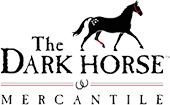Born in Chicago in 1888 William Knapp was born into the racing world, his father worked at Hawthorne Race Track and he became an exercise rider at age 10. When he turned 13 he became a jockey. He weighed in at only 56 pounds, about how much a single bale of hay weighs. For the first few years of his racing career he rode in the Midwest racing circuit. He faced some challenges when he tried to more to the New York racing scene in 1909. According to an article in the Daily Racing Form on July 25, 1909 Knapp’s application along with Arthur Redfern, the highest paid jockey in America at the time, and others were continuously tabled while others were granted their license. But the setbacks did not stop him and he did receive his license. Known more for his upsets than winning with favorites Knapp had a 15.5% winning percentage. In 1917 he rode Borrow, owned by Harry Whitney Payne, to a surprising victory over Old Rosebud and stablemate Regret in the Brooklyn Stakes. This was his first notable “dark horse”. After that Knapp mounted a great horse, Sun Briar, the favorite going into the 1918 Kentucky derby. Sun Briar was voted American Champion Colt in 1917, after a great year of racing including wins in Saratoga in the Albany Handicap, Saratoga Special, Grand Union Stakes, and Hopeful Stakes. Later in 1918 he also won the Travers and Delaware Stakes both in Saratoga as well. Sun Briar was a fast colt who trained against a gangly, awkward horse named Exterminator. Days before the 1918 Derby Sun Briar turned up lame and Exterminator, nick-named “Old Bones”, was entered in his place. Exterminator’s trainer Henry McDaniel was mocked for thinking this horse could compete at the Derby level and Exterminator went off at 30-1 odds with Knapp on his back. The Derby is 10 furlongs, Exterminator had never run more than six. Knapp set his disappointment aside and mounted Exterminator. Exterminator shocked everyone, including his owner, Willis Sharp Kilmer who had nicknamed him the “Billy goat” and had told reporters before the race “It is well understood that I do not consider Exterminator [to be] in the same class as Sun Briar”. Exterminator became one of Knapp’s favorite mounts after that ride and went on to have a very successful racing career with 100 starts, 50 wins, multiple places/shows. Knapp’s most ironic upset was Upset himself. Upset was owned by Harry Payne Whitney like Knapp’s previous mount, Borrow. Upset was a reliable horse, never a star, out of 17 starts he won 5, placed in 7, and showed in 1. Knapp and Upset became famous not for their win, but for who they beat. Knapp rode Upset to victory over Man o’War, blemishing Man o’War’s perfect record. Though Upset and Willie Knapp lost to Man o’War six other times, that one win is the one people remember. Truly solidifying Knapp’s reputation as the long shot jockey. Knapp retired in 1919 with 649 wins out of 4,185 mounts. He started training horses and took over the training of Exterminator in 1921, winning five more stakes races with him. He also trained Upset’s offspring; Upset Lad, who, like Upset was a reliable horse but did not get a lot of recognition. In an interview for Sports Illustrated November 9, 1959 Knapp was asked “Who was the greatest horse of all time?” He answered: “In my opinion the greatest of them all was Man o’War. I rode Upset when he beat Man o’War, the only time Big Red was licked. I laid a trap for him as he came up on the inside and I got him in a pocket. Rules forbid that today. If I had let him out of the pocket he would have won by six lengths.” Though Knapp and Upset went down in history as two famous Dark Horses, Knapp knew that under any other circumstances Man o’War was as unbeatable as they come. Knapp ended his career as a clocker and official and was inducted into the National Racing Hall of Fame in 1969. He passed away in 1972. In honor of him and his Dark Horse history we named our new Dark Horse lawn jockey after him!

Be the first out of the gate! Join our Mailing List!



